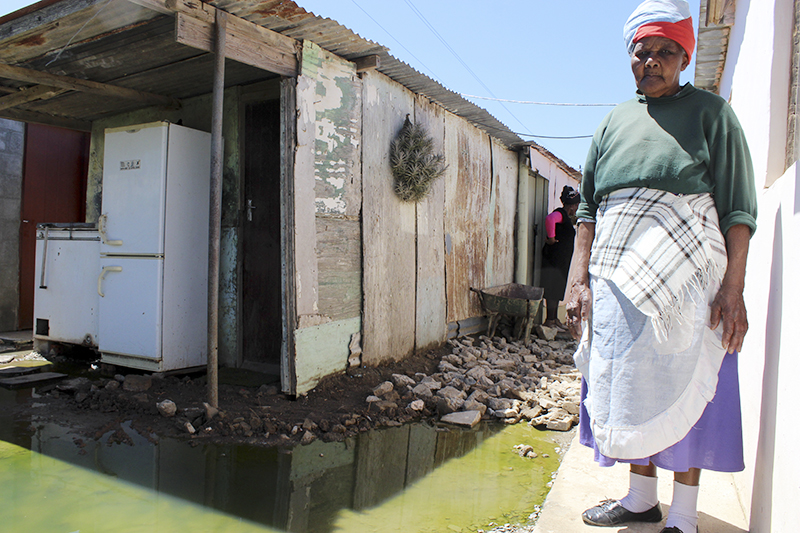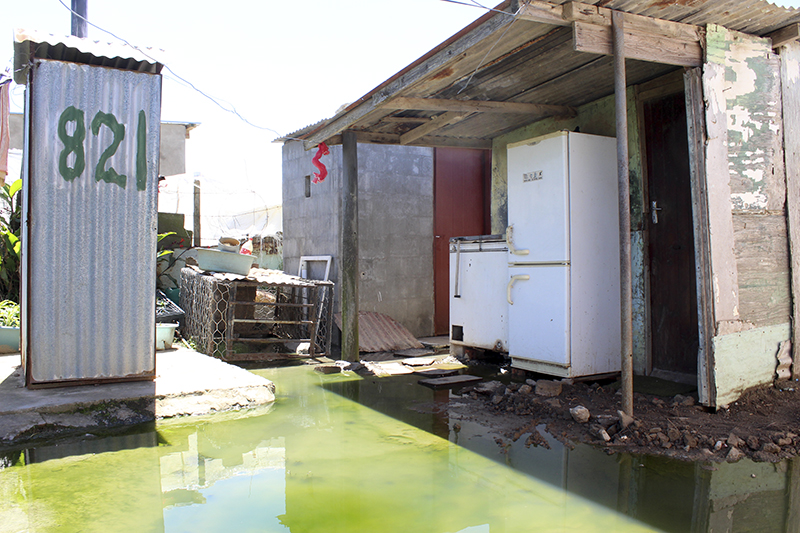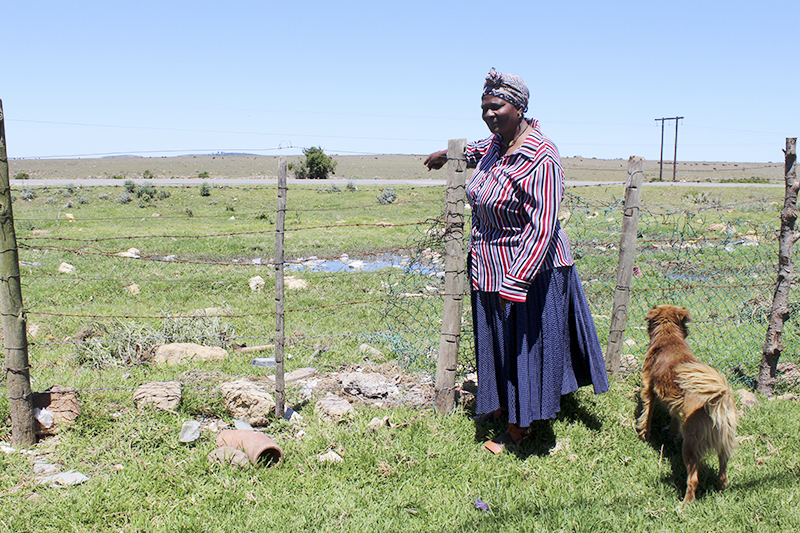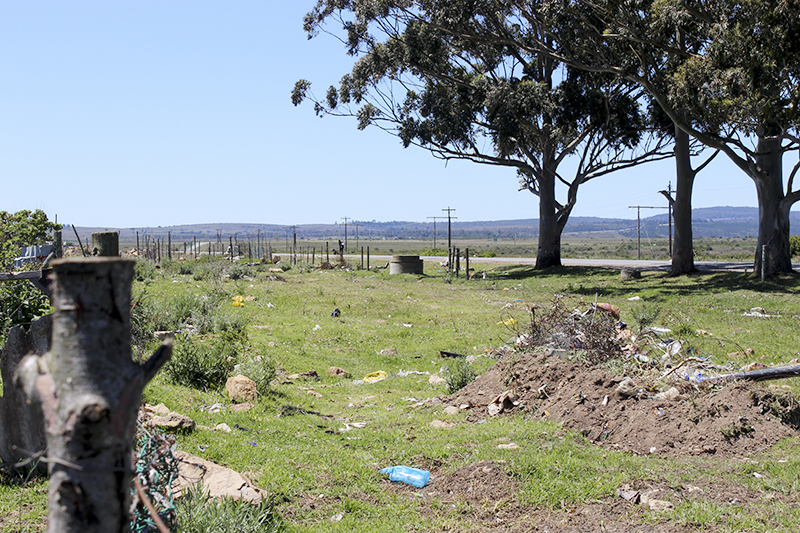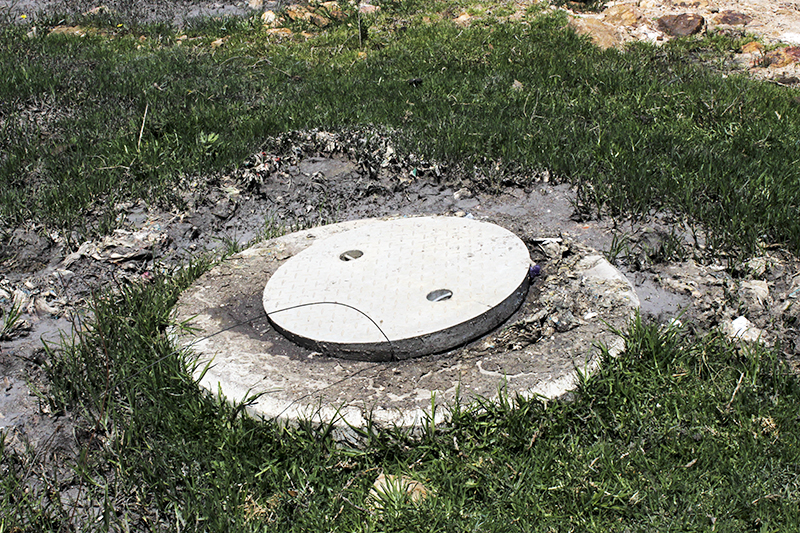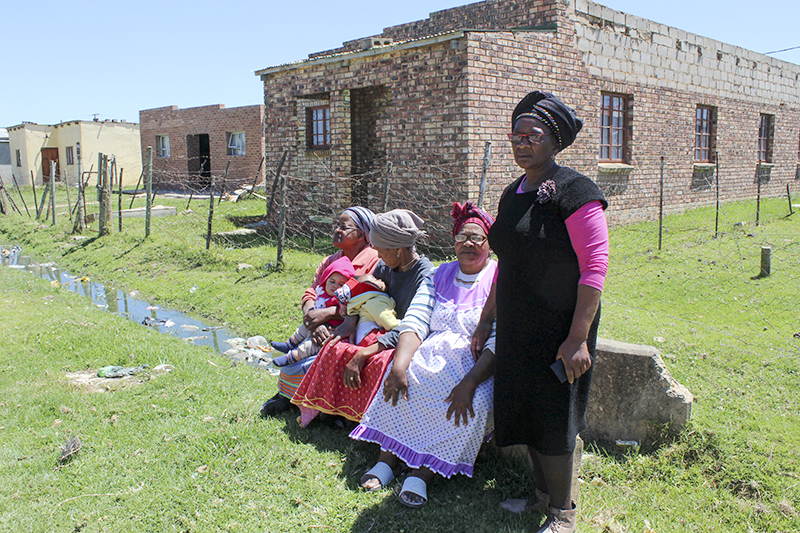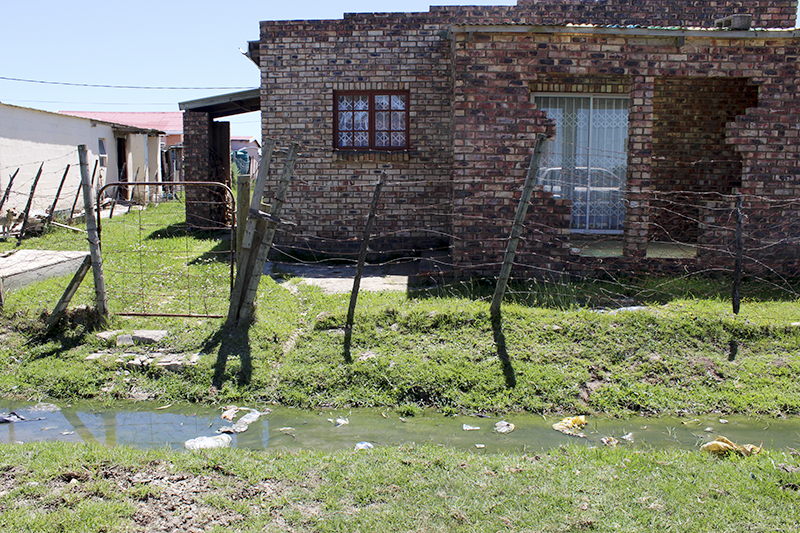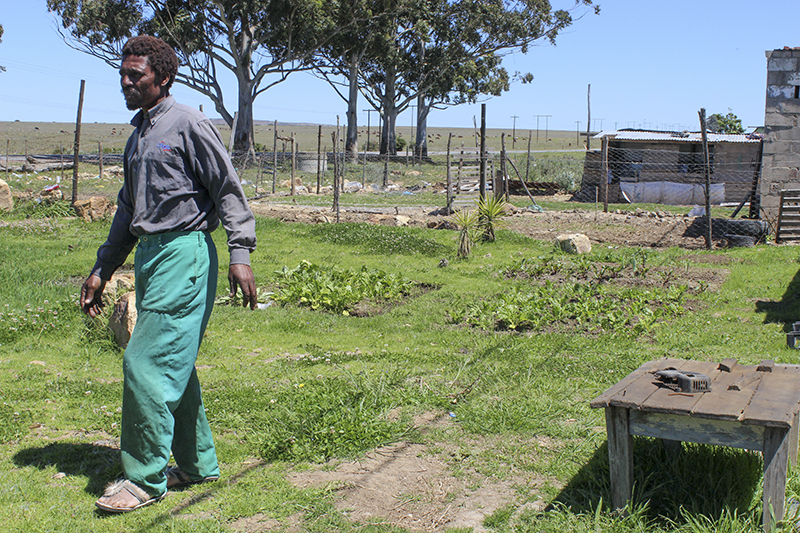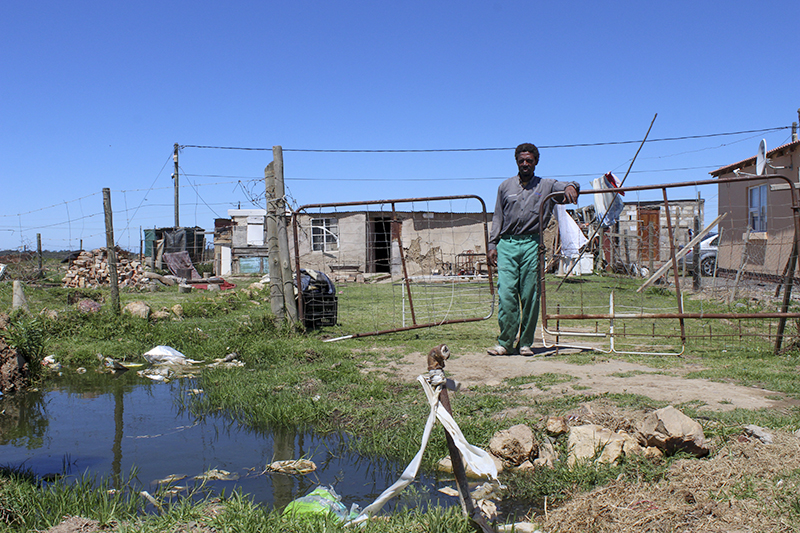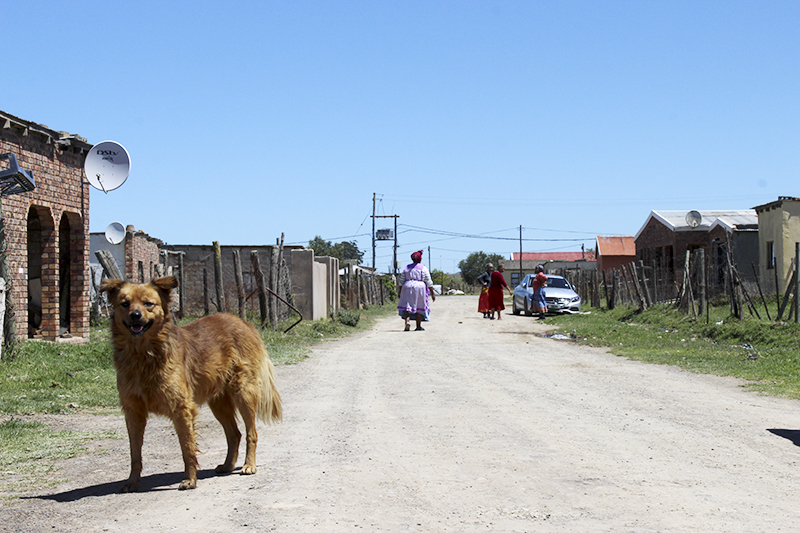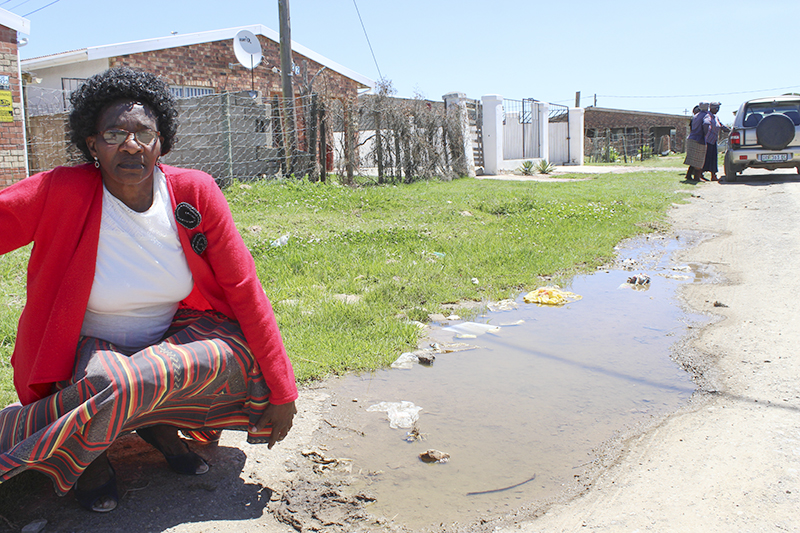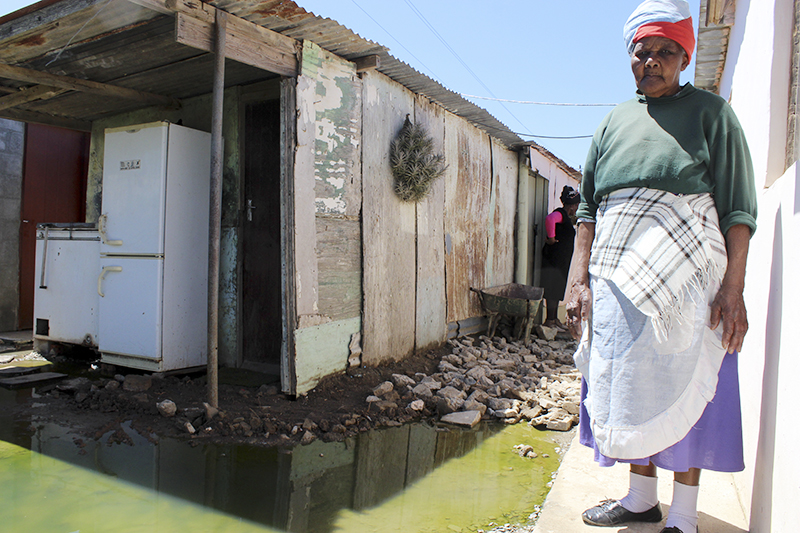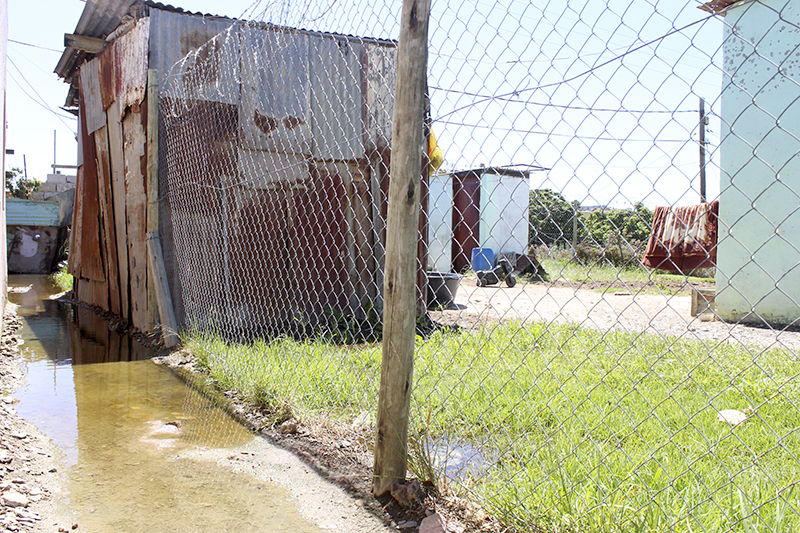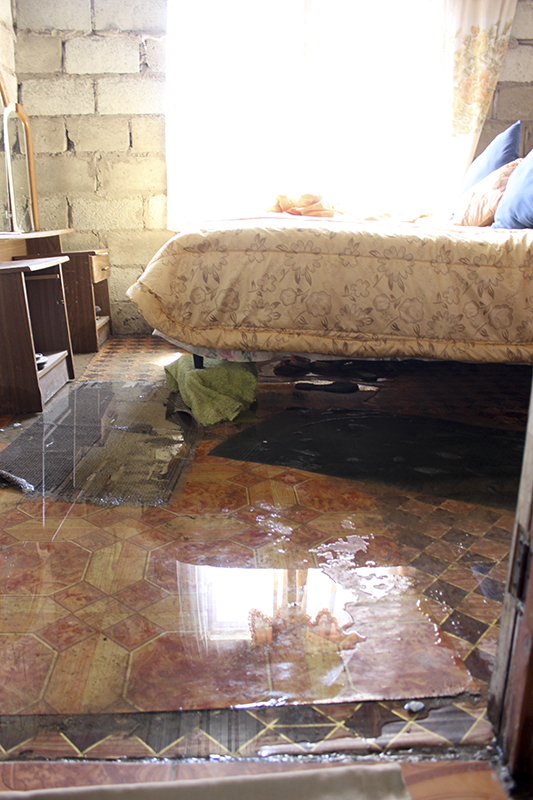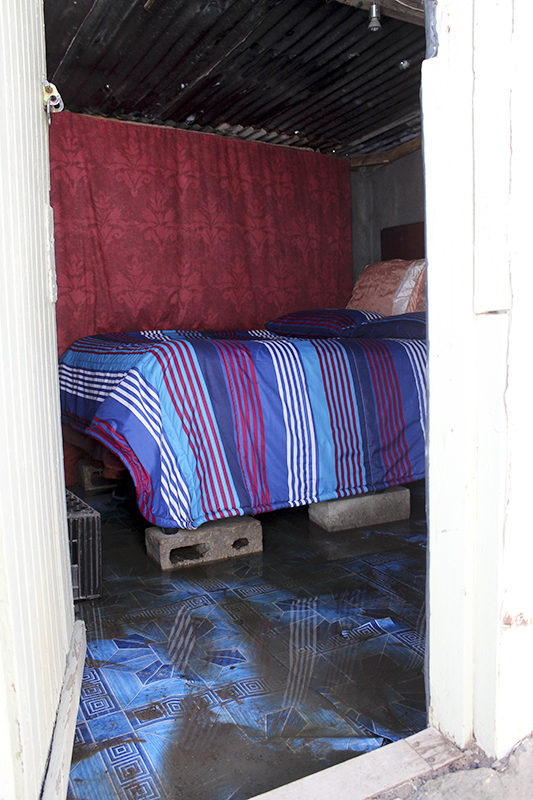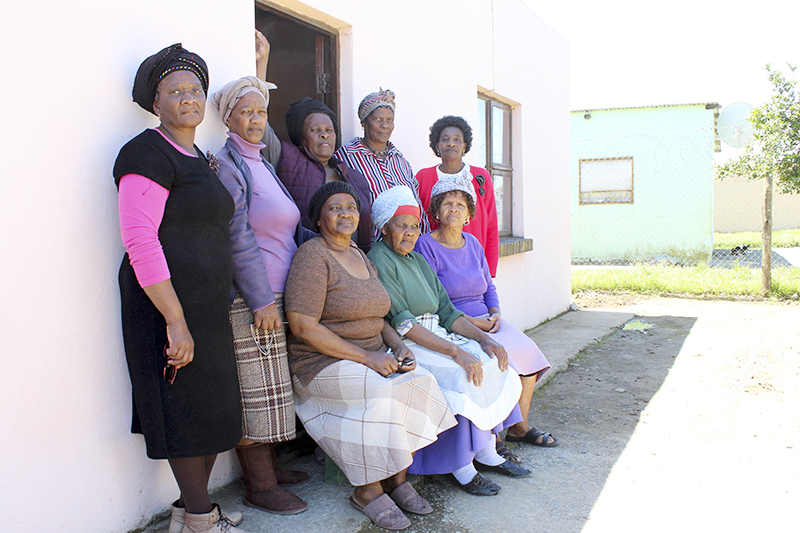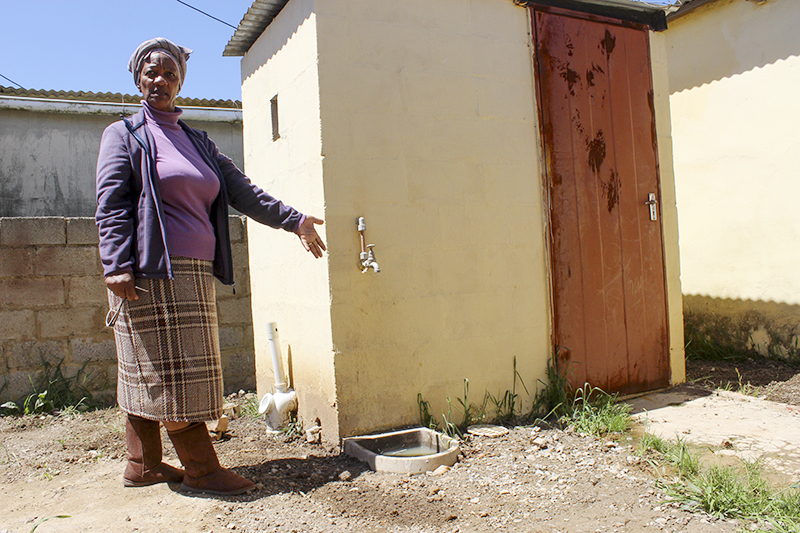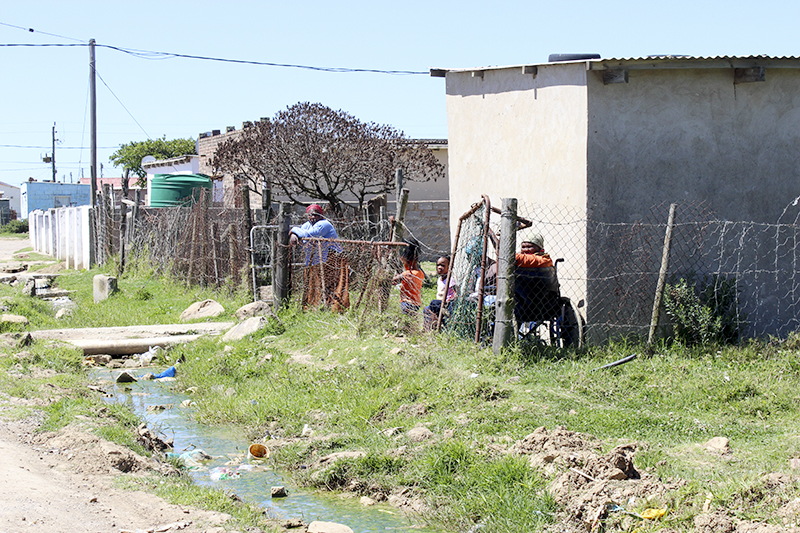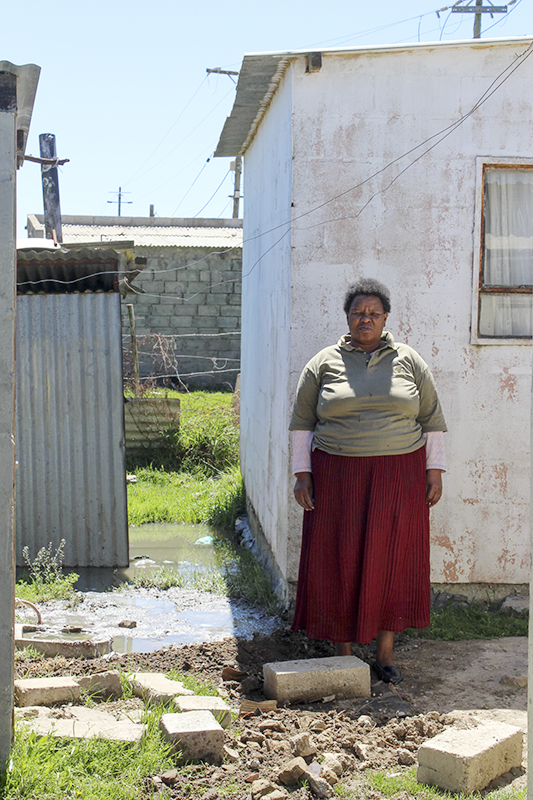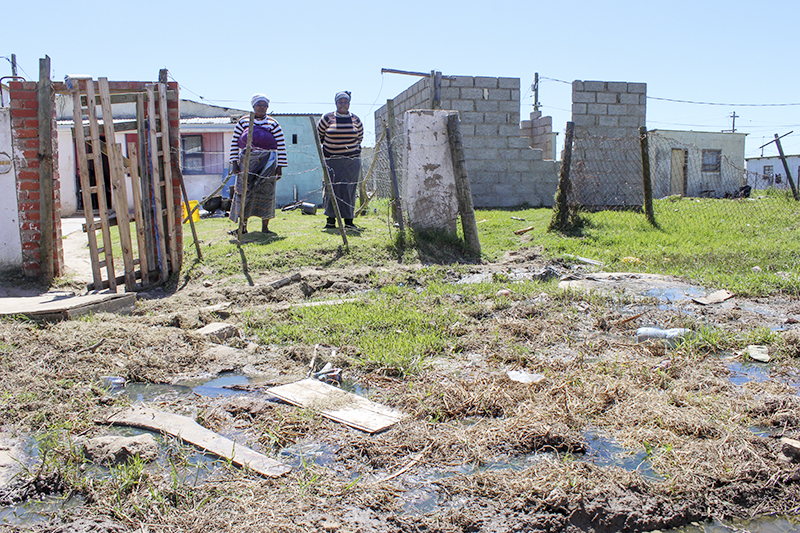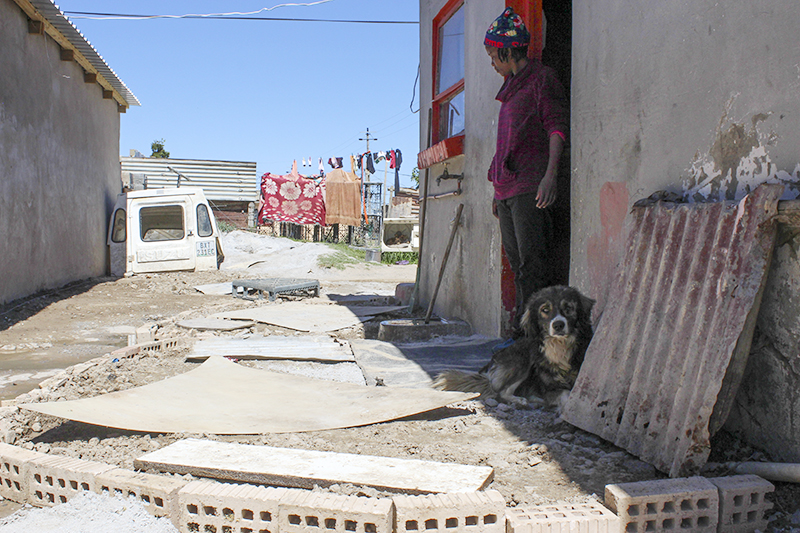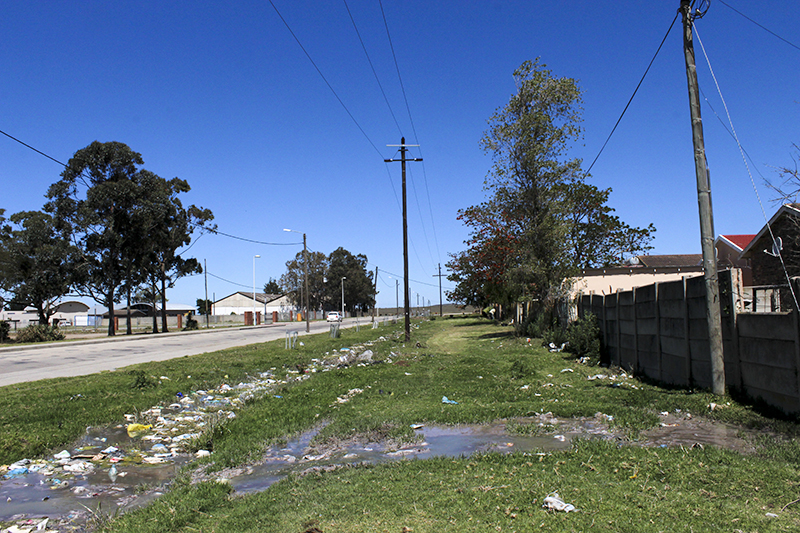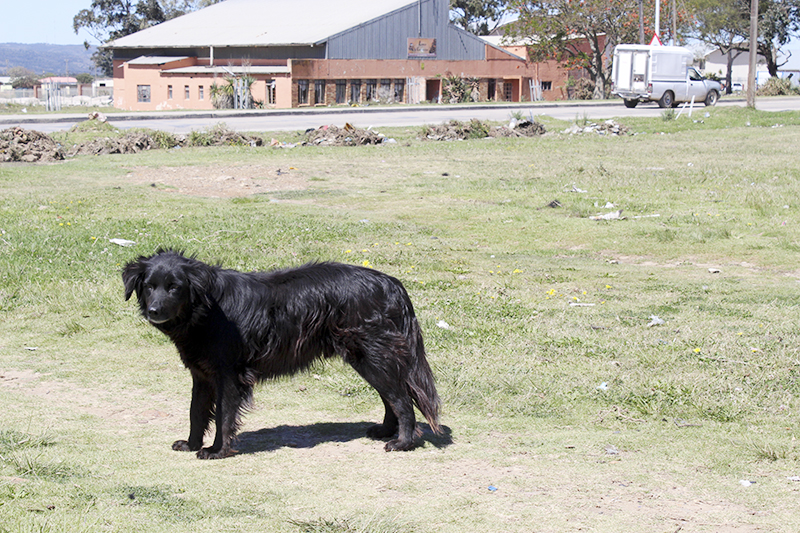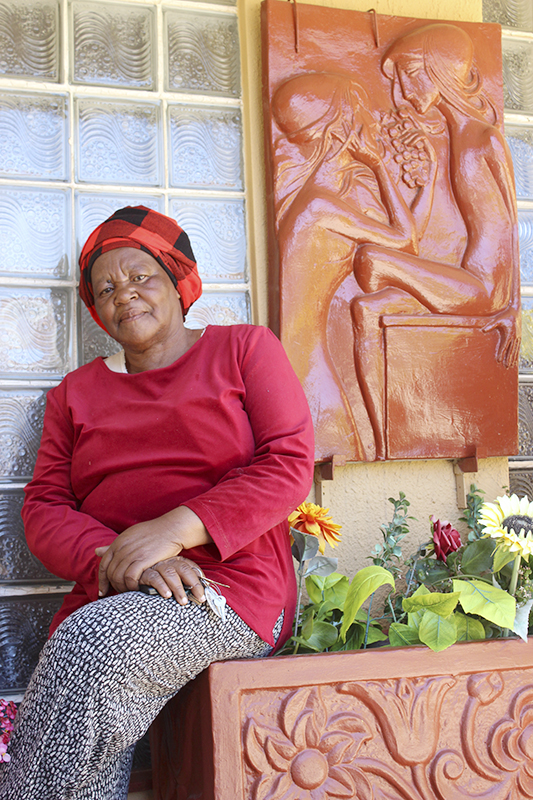On 22 October, a group of women from Extension 5 and Extension 6 demanded to see the editor. The women, in their 60s, 70s and 80s, were at their wit’s end. After months of phone calls and visits to the municipality, they said, they were still living in unbearable conditions, surrounded by raw sewage.
Grocott’s Mail was later that day taken on a tour of homes where the owners – mostly retired – continue to do their best to live the lives they’ve earned after dedicating their working years to the community as teachers, nurses and civil servants.
It was hot and as the windows were rolled down, the stench was overwhelming. Rivers of raw sewage poured along open stormwater drains past well kept houses, flotillas of plastic bobbing their way along the stream, until they reached an obstacle and clumped into a nest of faeces, toilet paper and condoms. Well established stepping stones and bridges are a sign of how long proud householders have had to block their noses and bear it.

Sometimes if the wind is blowing in the right direction and you forget where you are, your heart can lift a bit when you see puddles in the road. Until you remember it hasn’t rained in weeks. They’re not the kind of puddle you’d want your child to splash through in their gumboots and once you focus, you soon register the white flecks of toilet paper from an overflowing sewer. And there are plenty of children in the streets.
Piles of rubbish blown in the wind, or swept along by the toxic streams, pile up at random points, forming grotesque temporary sculptures.
Mxolisi Mankayi, who has lived in Extension 6 for 20 years, says it’s never been so bad. He has a young child who’s soon going to be a toddler needing a place to run around. There’s a swathe of soft green grass easily accessible across the fence.
It’s not your eyes or a badly focused camera that makes the grass look fuzzy. As you get closer, you recognise the familiar haze of toilet paper covering grass with its translucent film.
Mankayi grows vegetable in his yard to sustain himself and his family. He doesn’t look forward to the rains because that’s when the sewers flood and overflow into his house and yard, coating the spinach and green beans in that same film.
Nomaindia Elsie Lukwe was born on 1 March 1930. In two years she’ll be 90. She lives with her family in a small but neat and well cared for house.
But when she needs the toilet, which is outside, someone has to carry her across an ankle-deep pool of sewage that’s been there so long it’s green with algae.
The rooms of other family members are immaculate, tidy, with fresh linen on the beds. Then you look down and see the bed is on bricks because a 10cm-deep moat of sewage surrounds it.

Notyolo Bungane owns a B&B in Extension 5 that in 2006 was rated three-star and was a semifinalist in a national competition. Bungane has seven rooms to let. Opposite the Indoor Sport Centre, it’s ideal for managers on two-day visits to local branches and franchises. And that’s who Esihle B&B has no trouble attracting.
It’s not surprising: The premises are neat and clean, polished floors and gleaming windows softened by careful décor and well maintained plants.
When you’re there, it’s impossible to put together what you see with what you smell. Raw sewage pours along the open stormwater drain alongside the houses in the area, and bursts out of an inspection cover just outside her back gate.
Even with the best mental strength, you can’t escape the sickening stench. It surrounds and fills the living spaces of people who are asking no favours because they are supporting themselves and maintaining their own homes.
All the home-owners Grocott’s Mail spoke to – we stopped when we reached 11, with many more wanting to tell their stories – say they have made repeated phone calls and visits to the municipality to have the problem solved.
Grocott’s Mail called the residents this week, exactly a month later, to ask if any of the problems had been resolved. They were adamant they hadn’t. “Things are just the same,” said Pam Sandi, who led the tour. It’s no wonder these residents are in turns angry, despairing and disgusted.
Not doing work
The political response to the situation, as has been the trend in Council in recent weeks, was to put the blame squarely on municipal staff.
As the temperature on Monday 29 October soared towards 40C, the Speaker opened a special council meeting by saying, “Our water problems are being solved but sewage is now the problem.”
Yandiswa Vara had no hesitation in blaming the blockages and resulting overflowing sewers in areas such as Extension 5 and Extension 6 on municipal staff. “Blockages are the result of our workers not doing their work,” Vara said. “The problem starts when employees say they are going to service drains but they don’t do that.”
At the same meeting, the Mayor laid the blame for the Extension 6 sewage leaks squarely at residents’ doors.
“In Extension 6 they flushed their toilets before the [sewer]project was complete,” said Mayor Nomhle Gaga. “Now [as a result]that whole project must start afresh – and that needs funding and a honeysucker.”
NOW TAKE THE FULL TOUR



